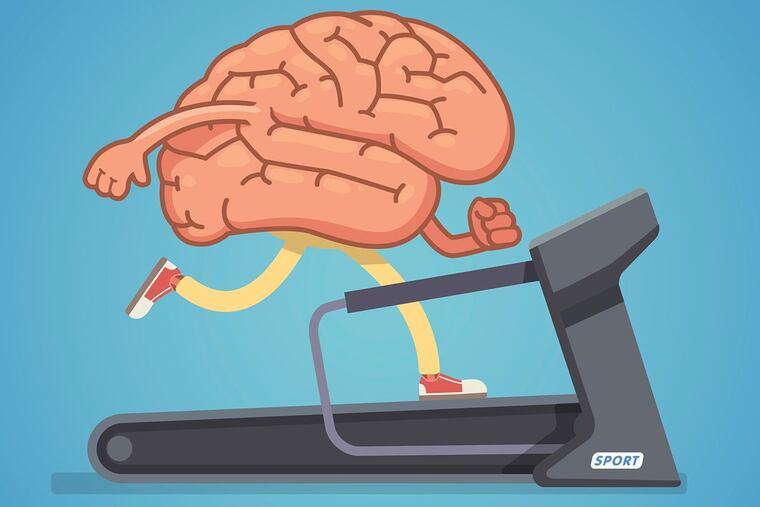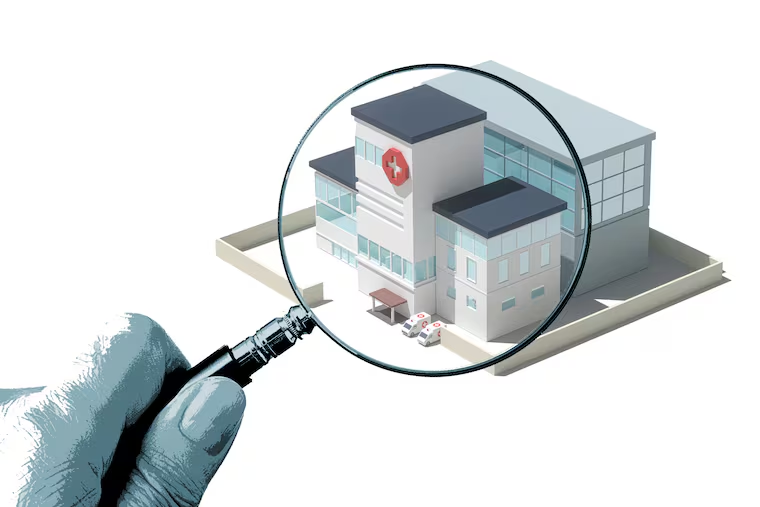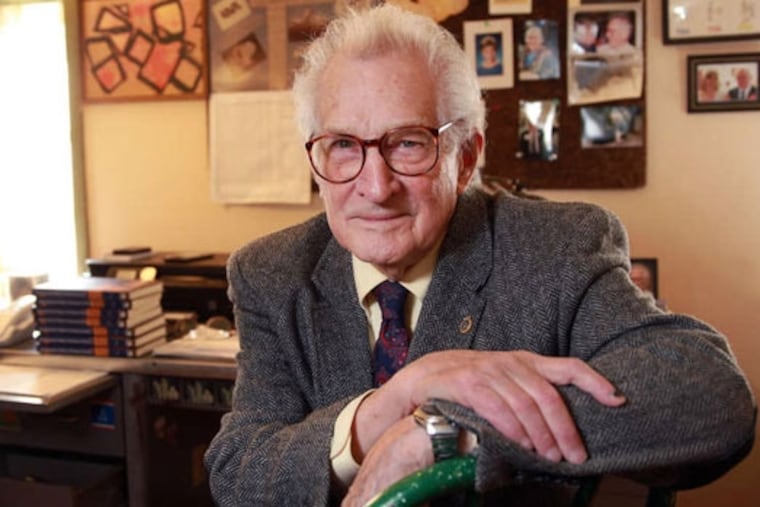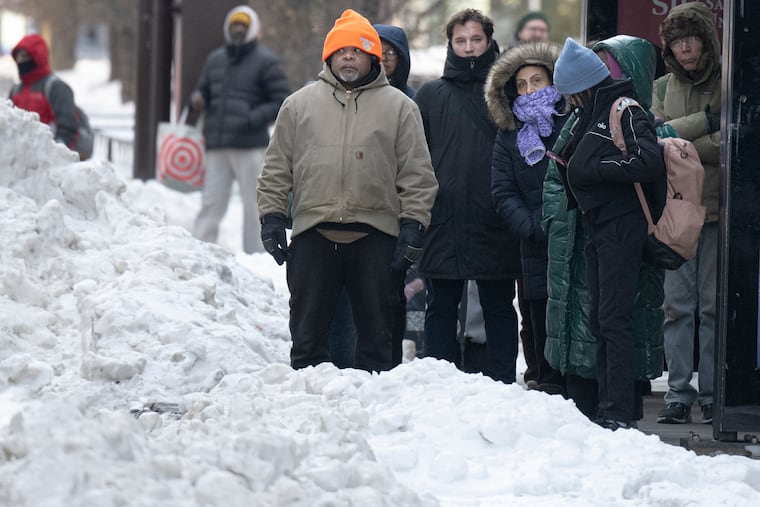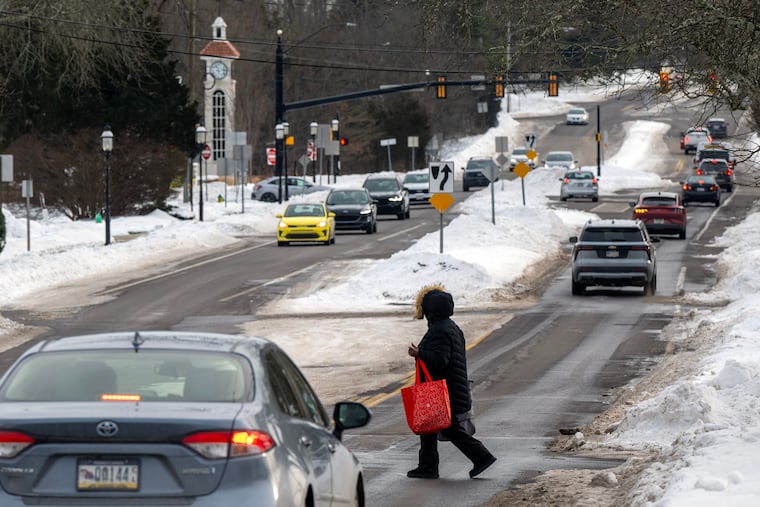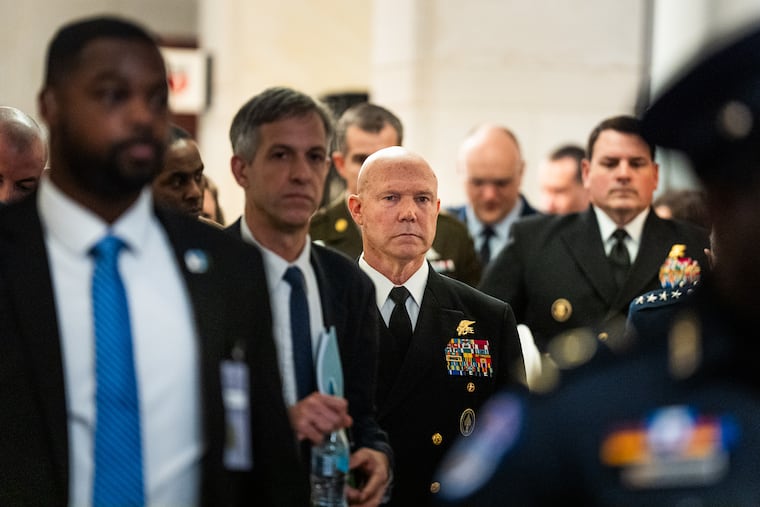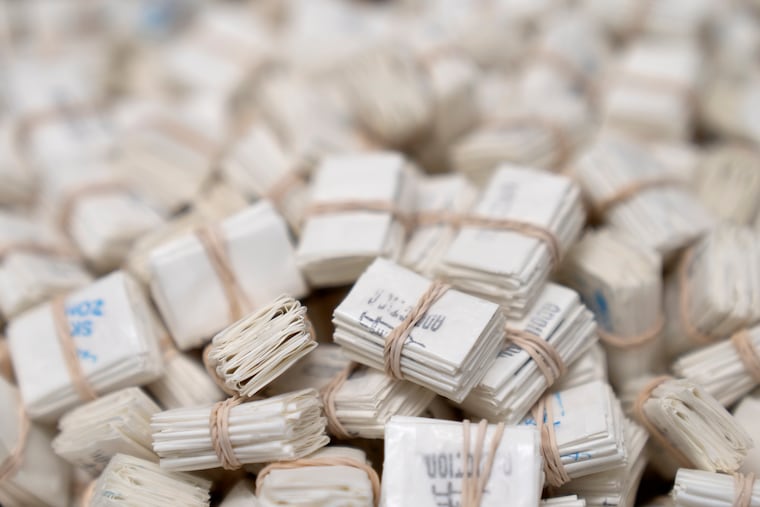Skip to contentJoanna Fong-Isariyawongse, The Conversation
Barry J. Jacobs and Julia L. Mayer, For The Inquirer
Joanna Fong-Isariyawongse, The Conversation
Joanna Fong-Isariyawongse, The Conversation
Barry J. Jacobs and Julia L. Mayer, For The Inquirer
John Lin and Jalpa Doshi, For The Inquirer
BriarRose Edwins and Hayley Goldner, For The Inquirer
Layla Bouzoubaa, The Conversation
Marcia Dunn, Associated Press
Adela Suliman and Kasha Patel, Washington Post
Marcia Dunn, Associated Press
Adela Suliman and Kasha Patel, Washington Post
Noah Robertson, Tara Copp, and Ellen Nakashima, Washington Post
David Ovalle and Cate Cadell, Washington Post
Geoff Mulvihill, Associated Press
Noah Robertson, Tara Copp, and Ellen Nakashima, Washington Post
David Ovalle and Cate Cadell, Washington Post
Geoff Mulvihill, Associated Press
{"ENV":"VHNnT1o+b1toXXBPdgxzWH9jcEB0DHQA","CONTENT_BASE_PROD":"VXBkBloif19TWWdFWwxeA3xgdEB0ImAGf2BkQHcMd158YHhAdzJwT3xzZAd0InQHf3B7XnQydE9oXXBPdDJgAXxwdE90ImAEfHNVWnQxY15/cGgHYyJWBXxNWk5jMWBNa1p7WmAxfEw=","ARC_ACCESS_TOKEN_PROD":"UwVFQVsiUU98WV4DWyJaTX5jcE50MlJNfnN8TXchbAZoXXBPdzJsQnxjdE90Ml4FfmNkTXcibEx/c1IFdAt4BH9wa1t0C3hPfE1wTnQxeARrc39aYAt8T2tdUk90VHhCfFpkBHQiUkJoBXQHdCJ4Bn5ga113IntZaE1wTnQxZEJrYGdcdxxWTXxweAR0IWdca2NwBnQyeEJrXXgGdDJwBWhNd15gC3tZa2B7XWMyd1h8BWgCYwt7WXxzYE90Il1ca2BoAncMfE1/cGRPYwt8CA==","GRAPHQL_KEY":"VV1zWV0+RU9+YFYCdFQNA3xNYAd2MnxNfFp0BWMhbAZ/XXRPYzJWBn8FdAZ3In9cfGN3W3cMf15rWnROdiJkQmtgfAd2MlFefHNgT2AcYAFrY2RPdwtjXHxzfEBjC2AAf2N4BmMBCAg=","GATEWAY_URL":"f11rBF0hfARrY3QEXAtgA3xgdAZ0MnAAfGBgT2MMZ1h8cHwHYAxkBGtaYE92MmRCfwV8B3Qyd1x8Y1IHYwtgAH9zZEBgMWwHfE1VXmMhf1lrXVlbYFRgBg==","GATEWAY_SLS_URL":"a3NzTVhUZ09TWVlPdAhwA39zVgZ3HHNefHN4T3YydAB8c1JAdAx0T2hdZEBjInBMfwV0B3cycAV8Y3RAdjFgTHxwfAdgVH9ZfF1/W2MLfAFrWn9adFRgTQ==","FEEDS_URL":"UFpBR2MyZwB/TX9YdzJaBX9aZ190InBCaF1gAnQicAR+Y2AFdDJwBXxNd150MnBMa3N3XHciVgV/TWAEYAt7WWtweE10VHBPfmN0BWMyXgV+Y3tdYAx7XHxdeAR3HHRMa3N8QGMMWVh+YHdcYzFkBH92DAo=","RESIZER_KEY":"VV1dXXcxRUZrWmAEYAsBA39zeAR0DHNcf2NSBXQMYAd8BWBNdyJWAXxzYEB3Mn9Zf3NWTXQyd11rYHhAd1RjXHxafAd3MlYAa2NaTWAcZ1xrYHQFd1RvXWtaZE5gMWNeaFpkQHcnCAg=","GOOGLEANALYTICS_ID":"UFldAmMLDARoBHcEWxxaBGtdZ1t3InBMf11wB3cifARrXWNadyFkBXxzeAV0DHwI","TWITTER_API_TOKEN":"Un9VB2MxfEJoWmMGYzJaTGhjfAd0DF5Pa3NwAmAMeEJ/TXNcdFR4QnxNeEBjDFZPf3N4BnRUZ1x8c3dedFRzWH9dd150VGBPfGBoA2MxcEJ8c2NbdAt7WH9zZAd0Im9YfnN3XGMMc1loY39fYAxRWWhaa1xjDFJCa2BoT2Mib1lrXX9bdCFwBX5wZE1jC2NYf3BkA3QiXk1rYGBOYwt7X3xzWgZ0MnNef1prXmMyUkJoYGtbYyJdWGtwYE12Mm9YfmB8B2MhZ1lrWmQGYzJ4Qmtwa1pjC2QFa2N3XmMiWV58YGtaYzJ/WWgFZEBjDHxCfnB0BGMiY1h+YHhOYwtzXnwFZAN0Im9ff1p8BGAxb198cH9aYyJzX3xdc19jIXtefmB8TmAcUgF8BX9bYFR/WH8FYAVgHGNefnYMCg==","GOOGLE_CLIENT_EMAIL":"U2NVBmBUc198BWtCWyJaQnxNZE50MlYFa3NgBXQhZAVoY3RNdCJsTWtzcE93MXhPf2N0A3Qxb1l8Y2AGYzFsTX5zZE50DHgFaAVoQHQMYEx+c3xPdxxeTGtwZAZ0VGxMf3B7XWMMWVl/WmhOYwtwBn8FZE9jMnRCf3BkTWAyb1l8YGtcdBx3WWhNWkB0VGdYf3B8QGMMXgdoTXtcYBx7X2hmDAo=","GOOGLE_PRIVATE_KEY":"fGN4TlsLDFpScEkGdiJ/XH5dfAN0MmBCfF1gBnQycAV/TXQGdAxWTH9jc113DHxPa2N0TXcLeAdrXXNddCF4BH9zeAJ0HHwEfE1wBHcceEx8Y1IEdCFkTXxjf1xjMl5CaF1zWmMxf1h8Y2ROYDFwTWhdc1x3DF4Ha1poB3QibEJoBWhAYBxkBWhdZ11gMXtYfE1jX3chZAVrXXRNdFR7WHxNe1p0C2BNaF1aA3cyWVlrY2BNdyFvXGhaY1xjIllefFp8BGAcVkx/cHgEYwxRXnxjVgZgDGQBfnBoAnQMd11oXXAEYyJzXn8Fd1pgC2NYaE1kBXYiVgF/cGdeYwxjXmtgYAJgVGNffmB0AmMyUV1oWmhPYwtzWHxwZE10IXNff2B8BGALf15rXV1cdiF7X2hgdE52MllZa3NZWmMhb1hrc1pAYAtvXXxgYE52Il4Ba1p4QGAcVgB/c1ZOYAx7Xn9jWk52MlJMfF1rXnQiVkx/TXBAdyJeB3xNcE50InNZaAVoQHQydE9oTVJNdCJgTH9aeAZ3DGQFfHBnWncyVk1oWmgEdCFjWHxNaAZ3IWdYaGNVXHchZAVrWmdcdDFnWWhaa1x0IXAFaAV0AmALfE1rY2tcdjJ4BXxwa110DGBPfGBrW3QyWV5rY2gCdyJjWHxadAZgMXwAf1poTmMLeAR8XXNeYwtjX3xgeAJgC2Nef01WA3chfAF/c3QDYFR/WX9aY19jC2Nff2NaB2AyUVh8TWhNdjFvXXxwaARgVGddaGBjXmAybE18c1lcYwtjXX8FaAR2IlIBa3BjWmAxb11/YGBPYwtnWX9NWV9jMndef2B0TnYiY1l/YGhNYAtwAWhaYAZgC2RCaGBrX3YiY1xoYGAEYyF8AX5wY152IWdefHNWBmAcbAB8BWRNYAxzXmhge112IW9ZfnNWBXRUZAR8XXAGdFRkBX9zY113IXwEf01zXHcycAV8Y39adwx4TWhdf110MWBCf2NgAnchbE98Y2AHdyJ0BWtdfE50DH9Za11wBnQMfE9/c2NedyFgT3xjYAd3DHAEa2N8BXcxYEJoBWtaYwxsTGhaeAd3ImxNfmNrWncyXgd/Y3xNYwtgTXxgZAVgHHtZa2B4T3chb19/cHtbdjJ8BWtzeAdgVGNffAVgBWMLf19/c1lddiJ7X39NZ15gMnddfHBkAnQyUVl8cGBAYDJsTH5jWgdgDHdZa3B0TXYibAB8TXRNYyJnX3wFfAJjIn9efFp0BWAxZ1lrcHdeYAxRWH8FfAdjDF1daFpkA3YheEJ/cHQCYzJZWGgFZAJ2MXAAaAV4BWBUY11/Wn9dYwxgAHxwaE5jDGNfa3B7W2MyXV5rYH9aYBx/XWhgY15jIntdaAVrX2MMf11rc2QGdxxSBn5zfAJ3C3BNfnN4BnQMbE9+c1ICdzJwT35je193IlYGf117WnQiYEx/TXgEYzJsBHxjYAR3DFJCfE1kT3cib11/XXdadzF8T3wFa150HGRCfAV3XncxYE9/c1VedyF8B2hjd19jC3NZfAVoQGAcZE1/TV1dYDJ0T2tdZ15gMXNdf1p8AmMLf1h/BWhAYyFjWGtjY1t3IWNYf2NgAnccXVx8cGQGdDF/WWtaZAVjDF1Yf01dWmMMUVloTVZOYAtsAH5jdAR0MntZaF1zWmMMd1h8BXhPYDF7WHxae11jDFldfnBrW2AyWV9/cGdfYFRwTWhjVk52MXNYfwVkA2AMeABoYGgCdiFvXWtwY1pgMmNefmNWB2MiUVhrYHtfYwtvWXxgYE92IWddfGNaBWAMWVlrYGNcdjJZXmhNWVxjDHQAfHB8T2AcdAF8YGtfYAt8BXxdZ190IlZCfnN7XHciUgV8c3xNYzF4BH9zeARjMWAFf2NSB3cyUk1/TWgEdwtvXGtaZ1t0DHtZfmBoTXQifExoWngDYAx0QmtdaAN3IngEf2BnWmMLeEJ8TXAGdDF8BHxwe112MlZNaGNgA2Ayf1xrY3BPdCJdWH9gZ15jC2xCf2B4TWAyZE1+c2hPYAxeAH9aaAdjMnNZfFpjXGMyVk9/Y2QEYAtsTH5wdEB2MmQBfAVkAnQLc19oYGNcYwx7WWtzWgd2IXtea2NVW2MLYAFoBWdeYzFsTWtwZAVgMl1ffHNdXGAMY19rcGhAYDJSAX8FZARjMnNdfmBgTmMhb11rYHQEdiJvXn9gaAJjInQAf2BrWmMiVgFrWngGYyFzWGtaZ1t2MXgBf2NaQGMyXgB/YH9adDJjXWtgdAZjIXwAfHBkTmMid1x/YHdeYwtkAXxadEB3DGxNfGNzXXQhfAZrY1Vddwx8TH5zZE13IlIEfGN8B3cyeE98Y3RNdCJ4TH5jY193Ml5MfE1VXHdUYAR8TXAHYzJSTXxNcAd0DHxMa3NkQHciUVh/YHhPYAtnXX5jfAVjC3tYfGN4TXQyXVloYHhNYDJeQmtzZANgDFlca1poBGMMZE1rXXBOdDFvWWtwdE52MlFZa2B4BXchYABoYH9fdDFzWXxwZ11gHFZNfmNVX2AyUVh/TWgEdiJnXGhgYE9gVGdfa2BkA2MiUVh/YHgEYDFvWX9dWV52In9da1pgT3QiWV58WmgDYwxRXn8FZEBjDHNea1p4QHYhb1h8WmRPYwxdXWgFfE1gHFJNa1prXHYyXV58BWdcdiJRWX8Fe1pgMntcfHB/W2AyWV5rY1YFYzFnXWtzWk1jIlIBaGNWT3YiUgF8BXtddiFjWWhjWgVjIW9faF1kT3cLZE9+Y3BPdxxsTWtjcAZ0HHBNf01nWncyfARoTXgDd1RsBWtzeAV0MnxMfGN8BXQMbE9+Y3AGdwtwTWtwdE13IXgEa2BrXXQcZ1l/WmgEdAxjWGhdZ1p3InBPa3N0AnYyb11rYGgCYwtjWH5wZEBjMntZfwV0T2AxYE18TWNfdyFvXX9ga190Il5NfFpjXWMxe15+cHdddyFgTX5jYEBgMn9caFprX2MhZ158WmNfdFRgTGhdWk5gDGdYf1p0BnciXgF/XXQEdDJ/XmhaeEBgHHtfaAV4TWMMb1h/WnhAYwxgAWhadE5jMW9ffFpkT2Aye1xrYGRNdjFjXWhNXV5gMWQAfGB/X2BUe158Y1pOYBx0AH9dWgJ2MWNefwV7W3YxYAFrYGACYDFnX2gFe1x2ImdYa1prXWMMZAF+cGAFdiJsAWgFdAZjMmQAaAV/W2AyVgR+Y1VcdxxsBH9zZEB0IlIGf2NwT3QyfAV8Y39fdzJgB2tdY1t3MWBCa3NSQHdUbAdrc3wHdzFgTWhdeAN0IXxCfmNnX3cydEJrc1JPdyJ7XGhaZE9jMllYfE1zXHQce1hrc2tcdzF7WXxza1pgDF4AfAVnXXQiUV9oXXQGdCJeTGtzWk93MnNYfHNSTXYxYAV+cGNbYBxkTXxwYARgVHxNfmNZXmAMUkJoXWBOYDFjXXxaZ1t0Il5PaGB/XGMib19rc1oFdyFnXnxNVVx2IlYFaE10BGMxb158YH9fYFRnX3xwd1tgMX9ZfwV3XGMyc1l8BXROdBx3Xn5ge1xgMntea3NdXGMLZ1h8YGdcdjF/XWtgfARjIlFcfAVnXnYib1l+cHQFYyJzXn9gYAZ2IX9Yf2BgQHQyY1xoBWADdiJkAGtjVgZ2MmdcfF1WT3Yib1hoXV1cdCJWQmtjd1x0C3gHfnNjXXQMdE1/XWhPdyFgB2hjd11jMlZMaF1zXXQxbAVrc2QDYAxwTHxNeAJ3DFlcf3N0AnQceE1rWmRAYwtkTHxzZ1t3MXxCfE1nXXcLb118XXQFdyF/WHwFZE90MmRCf2B7W2AyUVloY1IEdwxWB2twaANjMW9YaAVoT2MxZAV8BXROYDJjX2hjVk5gMl4Ef3BrWmMMf19/Y3BNYzJ7WHwFe1p3MXtffmNaBHYiVgB/XX9dYyJvWWgFa19jMWNfa1p7XnYyXV9/WngHYDJ7XWtwYAd0MW9dfAV4TWMLe19oTVoCYwx/XHxda1tgC39ZfGBgA2MLY15/BXgCYDJvWHwFZ11jMntYfmNdXmMiY1h8BWAHYzJzXn8FfAJjIlIAaAVrX2MMc158Y11cdiJzXmhafARgDHddfmNaTWAMf1h/BWQCYzJ/XH5zZE93HFYGfGN4AncyUk18XXgCdDJsB39zVV13InhCa110B3cydAd8c3dfdFRkTXxaaAZ0MnwEfF1jWmAybE9rWngDdzJSBH9jd1p0HG9YfE1wT3QiZEx8c2NdYDJwQn9Na11gMWNdfwVnW3QyVk98BWtfYzF8TXxdYAd3IXtZf3NkT3chfARrY3NfdCJ7X39zc1x0IllYf2NaA2ALeE1/Y2hAdjFvXH5gfE9jIX9YfnNwBGMhfEJ/TVlfYDJ7WH8Fd153HFIBfHB/WmMxc11oYGtcYDFjXGtadE9gMm9ef2NgBWMMXV1+cGhOYwxRXnxaeEBgHFlZa2NaAmAyUV1/TVoDYzJ8AWtae1p0Mntdf2BnXXYhe1lrXV1aYzFzXWhgeARjMl1Ya2BjXGMif19oWndeYAxwQnxdWVp2IW9efmBnXGMiVgF+cGAGYwtnXWhaeE5gMlZNfGNSTXdUbE1/TX9edwxWBmtzeE53MmRNa3NoTXcyYARrc2NaYAtgT39NYEB3Mm9cf01wA3QMXVl8Y3ddYzJ/WH5jaAd3ImxCaAV7Xncye1x+YGtddCF/WH9wZAVjMnQEfGNkTmALbEJ+Y2BAdjJ3XXxzcAJ3MmxNf2BnXGMxYEJ8XWBPYAtwTWtgdAJgMmQAfHBoTmBUe1lrcGACYFRvX3xjYAJ2MWxNfHB7X3chb11+YHxPdDJRXnxgYAdjDGdYfmNWTmAydE9+c1ZPYAxsAX5wYE1gMmNfaGBkAmMhbE18WngCdiJjWWhaeAJgMndZfGB7W2MMWV1/BXxAYDJ3Xn9NWkBjMmNda2NaQGAye1l/BWhPdiFkAWhdWgdjIndYaFpoBWMxf19/YGBAYyJ3WGtgdE9jMl4BfAV/XHYif1xrWmBAYyFjXH5wZ1pjDHNZa2NdX3QxZEx8XX9edAxeTXxNa1t3DFJPa3NoBHcxfAd8Y3QFdCJsTH9jfE10C2RCf2NjXHcMb1loY1IEdzJSBHxjfAR0ImxCa1prXGMybEx8TWgGdwtnWWtdYAZgMnAEfGNwQHcyYEJrWmQDdBxRWWtadAJgMl1faGB0T2AyUVx8c3NadDJeQmhNdAd0Imdef1p0TnYiUVl/YHRAYAxZXGgFaAd0C2BNfAVkTWMyY1l/XWAGYDJZX3xzaAR3IlIAfmBrXmAxY19/YGBPYBxvXn5jaE52IXtdfHB0BmAyXV1oYGhAYyJdXXxwZ15jIn9cfwVrX3Yye1loXWBPdjFnWH5ga19gHGNcaAV7X2ALcAB/YGNeYwxdX2twZ1p2ImdYfwV4BmMye15/BX9aYyJgAHwFYAV2ImdcaE1gBWMhY1h+Y11dYyF7XH9jWk92Indfa3BkBWMyXVx/XVJAdyF4BmtzZ1x3HFZNa3N0AnQcUkxrc2tedCFsBGtjUgZ3HGxMfnNzW3QyZEJ/TX9ddBx4BH9zY11gC2BNaF1rWmALYAd8WmdfdzJ4TWhgZE5jC2NYfHB7W3cyXkJ+c1pPdzJeBGhjfAJ0MWRCfmN7X2MMeE98cHROdyFnWH9geE92MWwFfmBkA3QcY1h8WmgGYwxzWHwFdAJ3MlJNaE1zWnche11rYGgCYzFnXX5wfAVgHHBCfnNgTnciWV5oXVladjFwAX5wfE5jMl1ffFp8TXQcb1lrcGteYDF/X2hjZ112MlIAaGB8A2BUY198WmhOYzJWQn5jWgJ2IlFYa3NaQHYyc1hoBXwCdDJjX2taeARgVH9dfFpoAmMLe11rWntcYzF8AX5gY11jIW9dfGB8B2Mhf1h8c1laYwtvXn9jVgN2Im9eaAVgAmMyeAF8TV1ediJkQn9NZAJ3MmRMfnN7XXccXgZoY3gCdAxsTHxNc1t0MnwHaF1oTXcLbE9+Y3gDdCJgBnxdZAZjMnAEf01wBnQcVk1/Y1VddzJ8QmtjcE13MXgEa113XXQxeEx/c3dadCJ4BXxjZ1p3MlJPfGNoBHdUZAdoY39c","BLUECONIC_ENDPOINT":"a39eB1pVYAZ+Y1IEWjFwA3xjfE93MmNcf2BgB2MiZAV/Y1IHdAxjWHxza1t0MnBCfAV4QHQLbE18c2tedwxnXWhaa150Intfa2N4BmAMe1h/XWdbdAtsAWhaeEB3C39c","BLUECONIC_STORE_ID":"UG9/BXRUQVh8b38DWwxaQn5zd110MmBCf11zW3QMYEJ/TXdcdyJ8TX5zZAd0MXtYfHNSTnQMXkx/Y2BAdyJkQmhjd1x0MWxPaF18BHdUYEx/c3wEdwxkT3xzcAV0HHxMf114T3QMb1xoBWRNdBx4CA==","BLUECONIC_KEY":"Ul1aQGBUTUZUWXhNdyJaQnxNZAV3InhCaE1jX3QyVk1/c3dc","BLUECONIC_SECRET":"a11rRmALf0J+b2tPYyJaT3xdaAV0DFJNf2NwBHQiZAVoTWNcdAxWTWtje19gDFYFf118B3QcfE1/c2BOYwtsT39NdAV0MWNca3BoA2MxbE9rY3hPYAtkT2hdZE10IlFZa3NkTw==","AMP_AUTH_BASE_URL":"fmBGBHYufwB/XWQGdAxaBHxaZ113IWwEa11zXXQiYAV/TWROdCJwBGtgeAN0MlYGf2NzWmMMbEJ8XWAHdCJ3XH9jY1p3HHAEfFp7XHcie1hoXXBOYDJvXGhjaEBgDF4Ga1poAmAMe1xoWmQEYwtjXWhjUgN3MlFdaFp0TmAcZAB/WnRA","AUTH0_DOMAIN":"fFlwBVpUfAdVYGtNXVV8A39gfE93MmAFf2BgB2AMYE18cGhAdjJ3XmtdYEB3MmQEa11kB3Qid1l8Y1IHYDJ3Xg==","AUTH0_CLIENTID":"UgRrX3Yub1lTf3teWCF4A3xgeEBgHGAFf1p8T3QyeE98c3gHYyFgTXxNWkB0DHBPf2N0BmMydAZ8Wn9bYBx3X3xjZE1jImBNfHN0TXchbE1rY3wHYwx8B2tjeAZ0DHRPfHNgT2MnCAg=","PIANO_ID":"f1oFAnQuUUNSWWNZYy5WA39NYEB2MlFdf2NwTXccdE18Y1JPdwxwAXxdVgo=","MIXED_CONTENT":"fGBrRHcuRUdoY2dHWCJeA39gaEB0HHdZfGB0B2MydAR8Y2AHdzJwTXxzfAd0ImRPf3NZW3YiZAZrXVZPdjJgBn9wdE90DGBPfHNVXnchY1l8Y2hAdjJ7X3xNdE50MXBNa11dWmBUfEw=","VIAFOURA_SITE_UUID":"VGB7QHQyd0VTWngCYzJeA3xgaAZ3DGQHfHNWBncydEx/Y3gGYAxgBXxaYEB3HHgAa2NgTXciVgR/TXBOdAxgAHxdUgR0MnNZf010TXYif118BXgFdzJRXnxad1tjIngHf1pgTXcyb118XWRNdxx8AQ==","GOOGLE_CLIENT_ID":"a29/AVoyd11Sf2QGY1RWA3xweE93DHABf2BoT3ccd1h8Y1pAdjJkQnxwdEBjIWAGf3BjWmALbEJ/c3xPYzJ3XnxweAd2InxPf2NdW2Mxb1xrXXdadAxWBmtjUk1jIW9Yf11jW2MyeAR8BWhOdwtgTHxjf153MWNda1pnWmMiYEJrWmdadDJ0TWtzVVp3MWRCaGBrXWMycAZrc2AFdBx3WWhNZ113MnNYfHNdXXQyYE9oBXRAYBx0TX9wYE90InAFfGN4QGBUZ158c2gHYyJzXw==","AUTH0_BASE_URL":"VVpnRWAMcE1VYHdBWBxSA39gdEB0DHQEfHB4B2Acd158c3RPYyJwTXxjVkBjDHNdfF13W3YxYAd8cHdeYAx3XmtjcE90IngBaF1gTXccf1h8Y1JPYyJWBn9NY1pgVGxCa1p7WmMLc1hrXXgK","CHARTBEAT_DOMAIN":"U3NrRWMMe11VYGhAWz5wA3xzeAZ0HHQAf3NWT2AydAd8cGhAdjJnWWtgZEB3DHNc","G_OPTIMIZE_CONTAINER_ID":"U2BjWnQcf0Z8Y3dNdgx4AXxadAZgDHQAfE1WTWMybEJ8c3hOdzJ0BHxadAo=","G_TAG_MANAGER_CONTAINER_ID":"aE14TlwhZ0JTY11Gd1RwA3xNUgRgMmxPfFpkBGAyf19/YHwFYDJ4BH9deAo=","SF_CLIENT_SECRET":"VWBBW3QxBEV8BXdbXSEFA3xNUgZjMnwHfHB4QGAMYE98cHQGYyJ/XHxNaE52ImdcfHNgBmAMbE98WmBNdjJvX3xdfE53DGNffAV4TWMyfE98XVoGdCJ3XnwFZE9gHHhMfE1kTnccd118WnhAdBx4TXxzYEB3Indef11aTWAceAB8YGRAdFRsAXxjWkB3MmAEfHNWQHcyY1l8Y1VaYyJ0BnxzUkBgHHAEfGN4B2AMc19oTXgGYzFgBXxgdAo=","G_RECAPCHA_V3_KEY":"VQRVR10xfwZTb3tfXQtaA3xdUk1jInBCfGNSBXcicEJ8TVJOdCJ0T3xNUkBjDH9df2BoTncifAB8TWRPdAx8BXxjeEB0HHdYfF1/WnQhb15rY3RAYyJ0T3xdVgZjDHBNfHNgTnYyc198c1ZOdzF7XH9jc1t3MnQGfE18Cg==","G_RECAPCHA_V2_KEY":"aGAAWWNUe1lSWmNOYDJWA3xaeEB2Mn9efHNkTnQycAZ8Y2hNdxxwB3xzeAV0In9ff018TWAce1l8c3BOdxx7WHxjWk90DHxPaFp8QGAMdE98Y2tbdwx0QnwFdAd0InQGfGNSTWMyZEJrY1ZAdjF4BnxdZ1t3InAEfFp8Cg==","GROWTHBOOK_CLIENT_KEY":"a1oIXXYyWQVrWVlOXQhWA39gfE90HH9Yf2B8QGMydAV8WmRAdCJ8THxzcAdgMnNZf3N4TnccdEJ/c3BAdFRjWA==","SOPHI_HOSTNAME":"aF1wTWNUUQRVb39GdzJaQmhNZAZ3MnAFfmNjW3QyfEJrXXdddDJnXH9ddAZ3IlFcf113X3QyXVh8dgwK","HTL_SCRIPT":"aAUEAmMIeAVoYAhddDJaTXxNc113MmxCfF18T3cxYE18Y3RNdDJ0TWhNd150MXxPfmNkQHQicAV/BWQGdzJdWXxzYE53MXNZa3BoQGMyc1h/XWNadAxWT2tjZ1t3HGdZaGBkTWMMXkx8cGtfYAt8T35wa1pjC39dfGN8BHQMeE1oYHwEdAx0AH9wfE9jDFYI","LIVEBLOG_WS_SERVER":"fmB7Xl0MUgZTb1VcYzJkA39jUkB3HHRCf2NWT3QyYEJ8Y1JPdiJzXWtjaAd0HGdZa2NSQGMMdE1/c2AHdwxwTGtdcE9gDH9dfHNaQHcMeEJrYHdbd1R8Bw==","SOPHI_SCRIPT":"VV1rWnQLBEVVYGcGYzJaQn9dZAd3Il5CaF1wAnQLZAV+Y2QDdyJeTHxzY113HGRCfmNwBHQxeE1/Y3AHdDFjWGgFZ11jC3AGa3NkAmAMUk18BWhPYwxjWX9df15jMmBPfGB0BGMMc1xrcGtaYwx0TGtdeANjC3NZaGN4TWALZ1h8TVpOdCJZX35zeE1jC39ZfFprXXQMUgdoWnwEdjF/X3xgfAZjIXNYfmYMCg==","STATS_WIDGET_CLIENT_ID":"fmNnQWMMf0BUcAlAd1R4A39zVgZgMnNffHNaT3cicAR8Y2hAdCJgBX9zYE93HGRNfHNoT3cccAZ/c2hPYBx0Qnxjf150Indf","_id":"230e112510c2385f8bc0d97de8acfbf4fbd29e312b695be906e14a817c58a5e1"}
